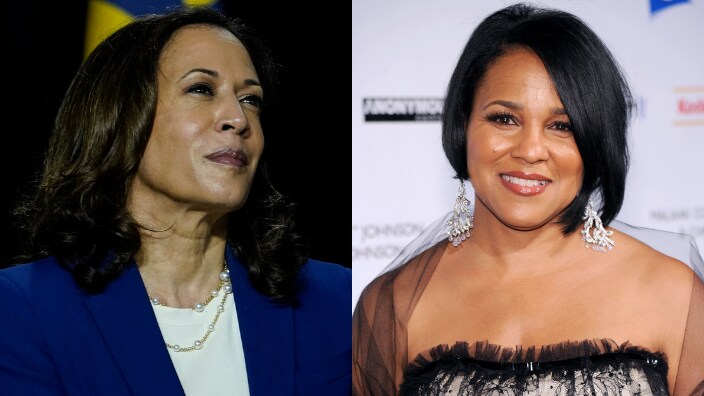How Michelle Obama helped Black women be their authentic selves
OPINION: Former First Lady Obama’s impact as a Black woman on the national stage set a new kind of tone about who we were and are as Black women cannot be overstated
As we slide into Women’s History Month with Black History Month now in the rearview mirror, I can’t help but feel a sense of great pride in all the amazing things we see Black women of our time accomplishing at this moment.
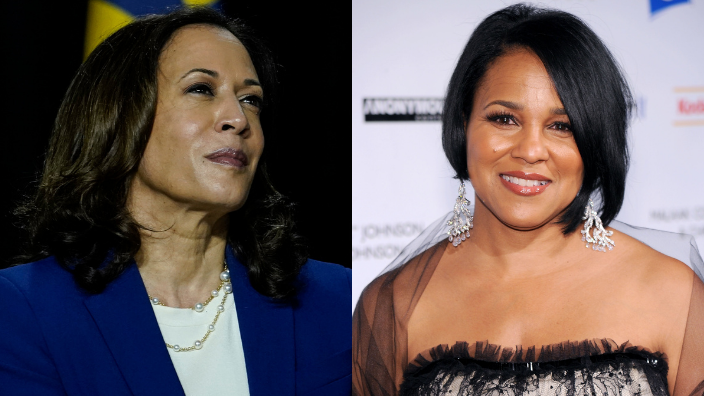
Whether it’s the obvious with my soror, Madam Vice President Kamala Harris’ ascension to the second-highest office in the land; or my other soror Rosalind Brewer about to take over the helm at Walgreens as its first Black woman CEO; or 21-year-old Sydney Barber who made history this January as the first Black woman at the U.S. Naval Academy to serve as Brigade Commander, Black women are shaking things up and knocking down barriers.
Read More: Thanks to Vice President Kamala Harris, the power of women will never be the same
When I look back at how this present moment of glory and ascension that Black women seem to be enjoying began, I think the shift really started when Michelle Obama became the first lady of the United States in 2009.
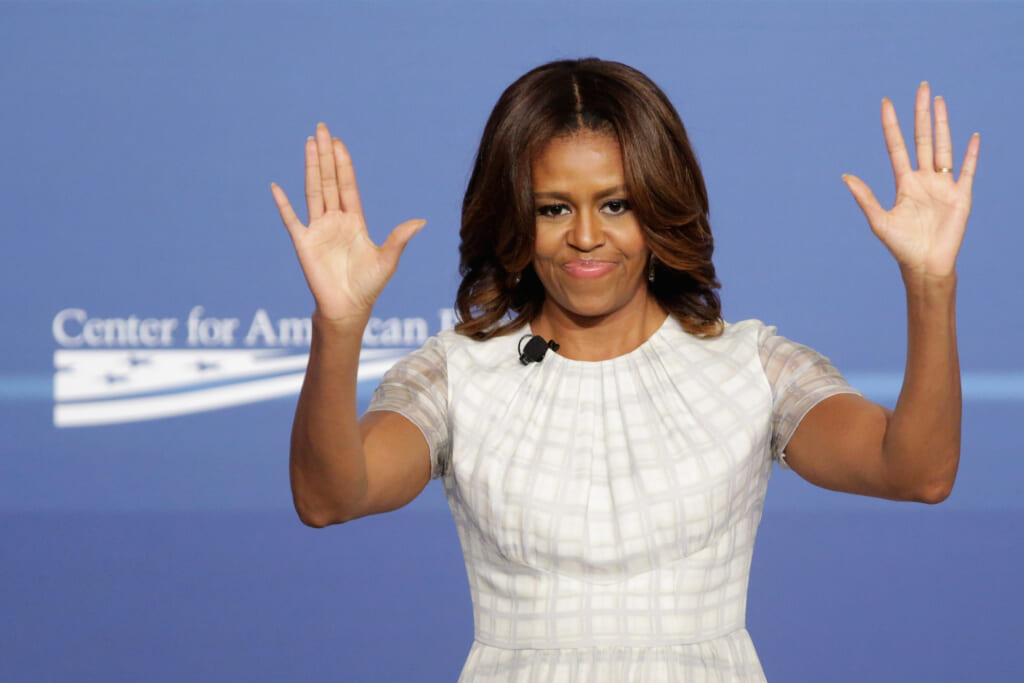
Michelle Obama’s impact as a Black woman on the national stage set a new kind of tone about who we were and are as Black women cannot be overstated. She showed the world that we were yes, accomplished, but that we were also fun. Loyal. Kind. Empathetic. Gracious. Elegant. Coupled. Devoted mothers. Protective daughters. And as sensual wives who still loved nuzzling our husbands in public.
In short: She showed us as layered, multidimensional women. Women with the full range of emotions that we always knew we had. We know one another, we see it modeled in our families, in our churches, in our sororities, and in our communities.
Read More: Michelle Obama to young readers: ‘The process of becoming isn’t finite’
Despite the personal attacks that she was subject to from day one in the White House, attacks from the hard hating right wing of the GOP like the late Rush Limbaugh, who essentially implied she was not fit in an attempt to disparage her efforts to improve the health and wellness of American children. “Our first lady does not project the image of women that you might see on the cover of the Sports Illustrated swimsuit issue, or of a woman Alex Rodriguez might date every six months or what have you,” Limbaugh said at the time.
And if the personal attacks were not enough, they came after her ground-breaking Let’s Move! campaign, as if she were a member of the cabinet, versus in her official capacity as the first lady of the United States. Funny, I was in high school when Nancy Reagan coined the campaign against drugs in three words: “Just say no,” and she was never attacked by the very same people that came for Michelle some 30 years later.
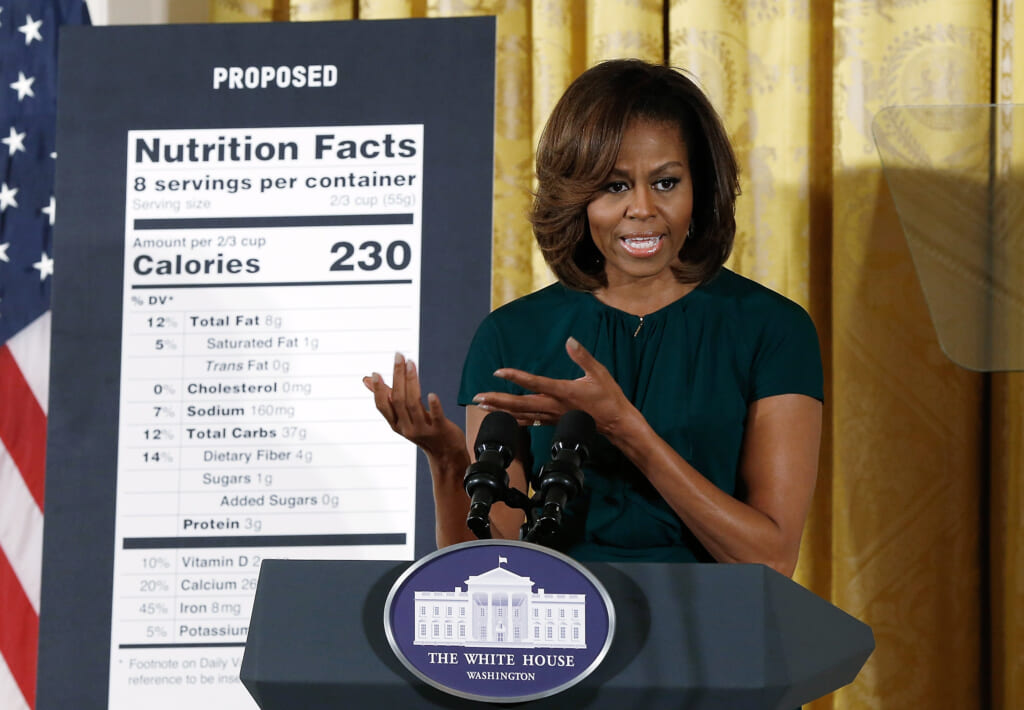
In reality, what Mrs. Obama was attempting to do was shine a spotlight on childhood obesity and food insecurity in poorer communities. As well as address the phenomenon of America’s adulthood of obesity and chronic diseases that are now commonplace in American life.
In this regard, Mrs. Obama was a master chess player in that she didn’t back away, she doubled down on her campaign to stop childhood obesity and create a global media blitz to do it. She masterfully used the power of Hollywood (Beyoncé, Ellen, Jimmy Fallon, Oprah, etc.) to make her campaign known to the general American public that historically seemed disinterested in the initiatives of a first lady.
For these reasons and more, Michelle Obama was a game-changer for strong accomplished Black women in America when she first hit the national scene in 2008.
Read More: Barack, Michelle Obama to appear in YouTube Original’s ‘Black Renaissance’
Look no further for Obama’s influence than Stacey Abrams who two years ago made history as the democratic nominee for governor of Georgia. She lost narrowly, and fast forward to January 2021, she has been nominated for a Nobel Peace Prize for her outstanding work to restore and protect voting rights in Georgia and nationally.
Abrams is one in a powerful line-up of Black women trying to change the face of our politics, corporate leadership, military leadership and more. Right here in my home of the commonwealth of Virginia, we have two credible Black female candidates running for governor. It’s a very different world than the professional one I came of age in the mid to late 1990s and beyond.
Michelle Obama, I believe, smoothed the pathway if you will, for them all, and for then-Senator Kamala Harris to be more palatable for voters on a national presidential stage. Obama allowed the public to get used to seeing us as Black women; be fit, dance, laugh out loud, to have an open sense of joy and the heart of a public service all at once.
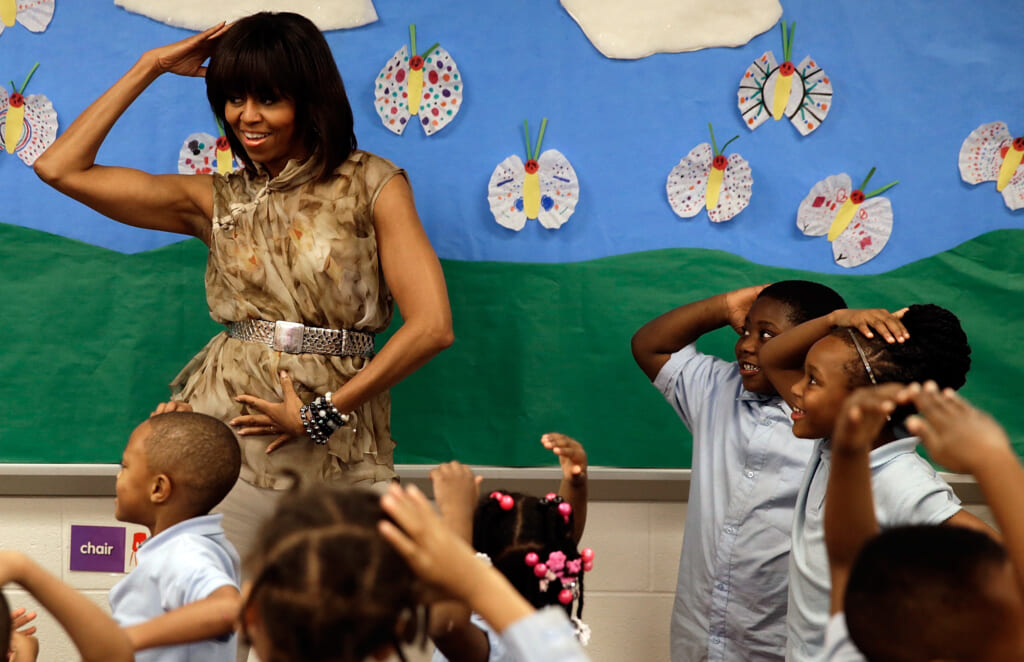
Michelle Obama also taught the world that we as Black women know how to endure the strain of racism when hurled at us daily, and publicly, like a ton of bricks. Michelle never lashed back. She never hit back. That is until she wrote her powerful memoir, “Becoming,” in which she laid it all on the line with grace and depth when she honestly spoke to her feelings toward Donald J. Trump and the danger she felt he had placed her husband and family with his hateful “birtherism” talk and lies.
When Michelle finally let loose, she let loose. For all the world to read — and read it they did. She showed us how to be strategic with our anger, and how to share it in ways that render our enemies powerless to respond or attack. Something we as Black women know well.
We must constantly “shift” between our Black lives, and work in a white male-dominated world, now becoming more white and female. We have to constantly be mindful of what we say, how we say it, how we come back and how we move forward.
As we head into Women’s History Month over the next few weeks, it’s imperative that we celebrate the amazing sisters who are all around us. Black women who have literally changed the world, and who in real-time are walking among and changing the world ever still.

Sophia A. Nelson is a contributing editor for theGrio.
Have you subscribed to theGrio’s podcast “Dear Culture”? Download our newest episodes now!
TheGrio is now on Apple TV, Amazon Fire, and Roku. Download theGrio today!
The post How Michelle Obama helped Black women be their authentic selves appeared first on TheGrio.

